Joshua 20 meaning explained in AI Summary
The Cities of Refuge: Chapter 20 of the book of Joshua describes the establishment of the six cities of refuge in Israel. These cities are designated as places where people who have accidentally killed someone can flee to for safety. The cities of refuge are a reminder of God's mercy and compassion. They are also a reminder that God is a God of justice, and that he will not tolerate murder.
Chapter 20 of Joshua details the establishment of six Cities of Refuge in the newly conquered land of Canaan. These cities served as safe havens for individuals who accidentally killed someone.
- God's Command: The Lord instructs Joshua to designate six Cities of Refuge, as previously commanded to Moses (Numbers 35:9-34). These cities were meant to protect those who unintentionally caused a death from vengeful relatives of the deceased.
- City Selection: Three cities were chosen on each side of the Jordan River:
- West of Jordan: Kedesh in Galilee (Naphtali), Shechem in Ephraim, and Hebron in Judah.
- East of Jordan: Bezer in Reuben, Ramoth in Gilead (Gad), and Golan in Bashan (Manasseh).
- Accessibility: The cities were strategically located to be easily accessible from all parts of the land.
- Purpose: Anyone who accidentally killed someone could flee to a City of Refuge and present their case before the city elders. If deemed an unintentional killing, they would be granted protection from the avenger of blood (a designated family member seeking justice for the deceased).
- Protection: The individual would reside in the city until the death of the high priest, at which point they could safely return to their own land.
Significance:
- Justice and Mercy: The Cities of Refuge demonstrated God's balance of justice and mercy. While accidental killing still carried consequences, the system offered protection and a chance for a fresh start.
- Holiness of Life: The system emphasized the sanctity of human life and the need for carefulness in all actions.
- Prefigurement of Christ: Some theologians see the Cities of Refuge as a foreshadowing of Jesus Christ, who offers refuge and protection from sin and death.
Chapter 20 of Joshua highlights a unique aspect of Israelite law, showcasing God's concern for justice, mercy, and the protection of life.
Joshua 20 bible study ai commentary
Joshua chapter 20 establishes the Cities of Refuge, a system divinely commanded to provide asylum for those who had killed someone unintentionally. It stands as a profound testament to God's commitment to both justice and mercy, tempering the ancient cultural practice of blood vengeance with a process of legal review and divine grace. This chapter details the practical implementation of a law given earlier, demonstrating a society structured not on retribution, but on principles that value life, fairness, and a path to restoration, all of which foreshadow the ultimate refuge found in Christ.
Joshua 20 Context
In the ancient Near East, the absence of a state-run justice system placed the responsibility for punishing a murderer on the victim's family. A designated kinsman, known as the "avenger of blood" (gō’ēl haddām), was honor-bound to exact vengeance. While intended to deter violence, this system could easily devolve into endless and escalating blood feuds. The laws for the Cities of Refuge, first commanded in Numbers 35 and Deuteronomy 19, are now implemented by Joshua. This system introduces a critical legal distinction between intentional murder and unintentional manslaughter (bishgagah), providing a sanctuary where due process could occur. These cities were also Levitical cities, places where God's Law was studied and taught, making them the ideal locations for administering this divine system of justice and mercy.
Joshua 20:1-3
Then the LORD said to Joshua, “Say to the people of Israel, ‘Appoint the cities of refuge, of which I spoke to you through Moses, that the manslayer who kills any person without intent and unknowingly may flee there. They shall be for you a refuge from the avenger of blood.
In-depth-analysis
- This is a direct divine command, emphasizing that this system is God's initiative, not a human invention. It is the fulfillment of a promise and law given decades earlier through Moses.
- Word: The key Hebrew phrase is bishgagah ûbivli-da'ath ("by mistake and without knowledge"). This legally distinguishes manslaughter from premeditated murder, for which there was no refuge (Num 35:31).
- The system's purpose is explicit: to provide protection from the gō’ēl haddām, the "avenger of blood." This immediately institutes a legal process over personal vengeance.
Bible references
- Numbers 35:11-12: "...you shall select cities to be cities of refuge for you, that the manslayer who kills any person without intent may flee there... from the avenger." (The original command).
- Deuteronomy 19:4-6: "This is the provision for the manslayer... who kills his neighbor unintentionally... he may flee to one of these cities and live." (Moses' restatement of the law).
- Exodus 21:13: "But if he did not lie in wait for him, but God let him fall into his hand, then I will appoint for you a place to which he may flee." (The initial principle of asylum).
Cross references
Deu 4:41-43 (Moses sets apart the first three cities); Gen 9:6 (principle of life for life); 1 Chro 6:54-81 (cities assigned to Levites).
Joshua 20:4
He shall flee to one of these cities and shall stand at the entrance of the gate of the city and state his case in the hearing of the elders of that city. Then they shall take him into the city and give him a place, and he shall dwell among them.
In-depth-analysis
- The city gate was the ancient equivalent of a courthouse and city hall. It was the public center for legal rulings and business transactions.
- The fugitive must "state his case." This isn't a full trial but a preliminary hearing. The elders must hear a plausible claim of innocence before granting asylum.
- The act of being taken into the city signifies a formal acceptance of responsibility. The city is now the fugitive's legal guardian and protector.
Bible references
- Ruth 4:1-2: "And Boaz went up to the gate and sat down there... And he took ten men of the elders of the city and said, 'Sit down here.'" (Example of the gate as a legal venue).
- Deuteronomy 21:19: "...then his father and his mother shall take hold of him and bring him out to the elders of his city at the gate of the place where he lives." (The role of elders in judgment).
Cross references
Pro 31:23 (husband known in the gates); Gen 23:10, 18 (Abraham's land transaction at the city gate); Zec 8:16 (judging with truth at the gates).
Joshua 20:5
And if the avenger of blood pursues him, they shall not give up the manslayer into his hand, because he struck his neighbor unknowingly and did not hate him in the past.
In-depth-analysis
- This verse makes the city's protective role absolute until the formal trial. It establishes the city as a sovereign sanctuary against the claims of the avenger.
- The criteria for protection are restated and clarified: it was unintentional (bilî da‘at - "without knowledge") and there was no prior malice ("did not hate him"). This highlights that the heart's intent is central to God's definition of justice.
Bible references
- Deuteronomy 19:6: "...lest the avenger of blood pursue the manslayer while his heart is hot... though the man did not deserve to die, since he had not hated his neighbor in the past." (The legal basis for protection).
- 1 John 3:15: "Everyone who hates his brother is a murderer..." (The New Testament confirms that intent/hate is at the heart of murder).
Cross references
Num 35:19-21 (distinguishing hate and accident); 1 Sam 24:11 (David proving lack of malice toward Saul).
Joshua 20:6
And he shall dwell in that city until he has stood before the congregation for judgment, and until the death of the one who is high priest in those days. Then the manslayer may return to his own town and his own home, to the town from which he fled.’”
In-depth-analysis
- Two conditions are set for the fugitive's release:
- A formal trial: He must stand before the "congregation" (
‘ēḏâ)—a formal assembly or court—to have his case officially judged. This ensured a full, public legal process. - The death of the High Priest: This is a deeply symbolic provision. The High Priest was the nation's spiritual representative before God. His death served as a type of ransom or atonement that satisfied the "bloodguilt" on the land (Num 35:33) and closed the case. It ended the avenger's legal right to pursue, allowing for a societal reset.
- A formal trial: He must stand before the "congregation" (
- This provision is a powerful foreshadowing of Christ, our Great High Priest, whose death provides ultimate and final freedom from the condemnation of sin for all who take refuge in Him.
Bible references
- Numbers 35:25, 28: "...and he shall remain in it until the death of the high priest... because he must remain in his city of refuge until the death of the high priest." (The direct legal source for this condition).
- Hebrews 9:11-12: "But when Christ appeared as a high priest... he entered once for all into the holy places... thus securing an eternal redemption." (Christ as the High Priest whose death secures ultimate freedom).
- Hebrews 4:14-16: "Since then we have a great high priest... Jesus, the Son of God... Let us then with confidence draw near to the throne of grace..." (Drawing near to our High Priest for refuge).
Cross references
Heb 2:17 (Christ as merciful high priest); Heb 7:23-27 (permanence of Christ's priesthood vs. mortal priests).
Joshua 20:7-8
So they set apart Kedesh in Galilee in the hill country of Naphtali, and Shechem in the hill country of Ephraim, and Kiriath-arba (that is, Hebron) in the hill country of Judah. And beyond the Jordan east of Jericho, they appointed Bezer in the wilderness on the tableland, from the tribe of Reuben, and Ramoth in Gilead, from the tribe of Gad, and Golan in Bashan, from the tribe of Manasseh.
In-depth-analysis
- Here the command is fulfilled. Six specific cities are named and consecrated (qadash - set apart as holy).
- Geography: They were strategically placed—three west of the Jordan and three east—and spread from north to south. This ensured that a city of refuge was always accessible, likely within a day's journey from anywhere in Israel.
- Levitical Cities: As detailed in Joshua 21, all six were Levitical cities. The Levites, who had no tribal allotment of land and were dedicated to serving God and teaching His law, were the ideal administrators of this system of divine justice and mercy.
Bible references
- Joshua 21:13, 21, 27, 32, 36, 38: Confirms that each of these six cities were given to the Levites.
- Deuteronomy 4:41-43: "Then Moses set apart three cities in the east... Bezer... Ramoth... and Golan..." (The appointment of the eastern cities).
Cross references
1 Chro 6:67, 71, 73, 76, 78, 80 (Listing the Levitical cities of refuge).
Joshua 20:9
These were the cities designated for all the people of Israel and for the sojourner who dwelt among them, that anyone who killed a person without intent could flee there, so that he might not die by the hand of the avenger of blood, until he stood before the congregation.
In-depth-analysis
- This verse summarizes the purpose and scope of the law.
- Crucially, the provision is for everyone: "all the people of Israel and for the sojourner (
ger) who dwelt among them." This demonstrates God's inclusive justice. The same legal protections and access to grace were afforded to the resident alien as to the native Israelite. - It serves as a final, powerful reminder of the system's core function: to substitute due process for immediate vengeance.
Bible references
- Numbers 15:29: "You shall have one law for him who does anything unintentionally, for him who is native among the people of Israel and for the stranger who sojourns among them." (One law for native and stranger).
- Ephesians 2:18-19: "For through him we both have access in one Spirit to the Father. So then you are no longer strangers and aliens, but you are fellow citizens with the saints..." (Gentiles/sojourners brought into God's household).
- Galatians 3:28: "There is neither Jew nor Greek, there is neither slave nor free, there is no male and female, for you are all one in Christ Jesus." (The ultimate fulfillment of "one law for all").
Polemics
The principle of equal justice for the "sojourner" (ger) was a radical departure from the nationalism of other ancient cultures, which typically had separate, and often inferior, legal standards for foreigners. God's law established that justice and the value of human life were universal principles, not tribal privileges. This directly challenged the xenophobic tendencies of the ancient world.
Joshua chapter 20 analysis
- The Gospel in the Cities of Refuge: The entire system is a physical portrait of salvation.
- The Sinner: We are all guilty, pursued by the just consequence of sin, which is death (the "avenger").
- The Way of Escape: God Himself has appointed a place of refuge—Christ. The path to Him is clear and open to all.
- Fleeing for Refuge: We must actively "flee for refuge" (Heb 6:18) to lay hold of the hope offered in Christ. It requires a desperate, intentional act.
- Security in the Refuge: Once in Christ, we are safe and secure from condemnation (Rom 8:1).
- The High Priest's Death: We are set free not by our own merit or the passing of time, but solely through the death of our Great High Priest, Jesus. His death provides our atonement and permanent release.
- Balancing Justice and Mercy: The system did not ignore the fact that a life was lost. The manslayer, though not guilty of murder, still faced a severe consequence: exile. He lost his home, his land, and his freedom of movement. This exile honored the sanctity of the life that was taken and acknowledged that even unintentional sin has consequences, ensuring justice was served even as mercy was provided.
- Divine Law vs. Human Revenge: This chapter showcases a society being built on divine commands that elevate law, reason, and mercy above the natural human impulse for personal revenge. It limits the
gō’ēl haddām, transforming his role from a personal vigilante into a participant in a state-sanctioned legal process.
Joshua 20 summary
The Lord commands Joshua to formally appoint the six Cities of Refuge, fulfilling the law given to Moses. These strategically located cities—Kedesh, Shechem, Hebron, Bezer, Ramoth, and Golan—were to provide asylum for anyone, Israelite or sojourner, who killed a person unintentionally. A person fleeing to one of these cities would be protected from the "avenger of blood" until he could stand for a fair trial, and would remain there until the death of the acting High Priest, whose death served as a symbolic atonement, allowing the person to return home freely.
Joshua 20 AI Image Audio and Video
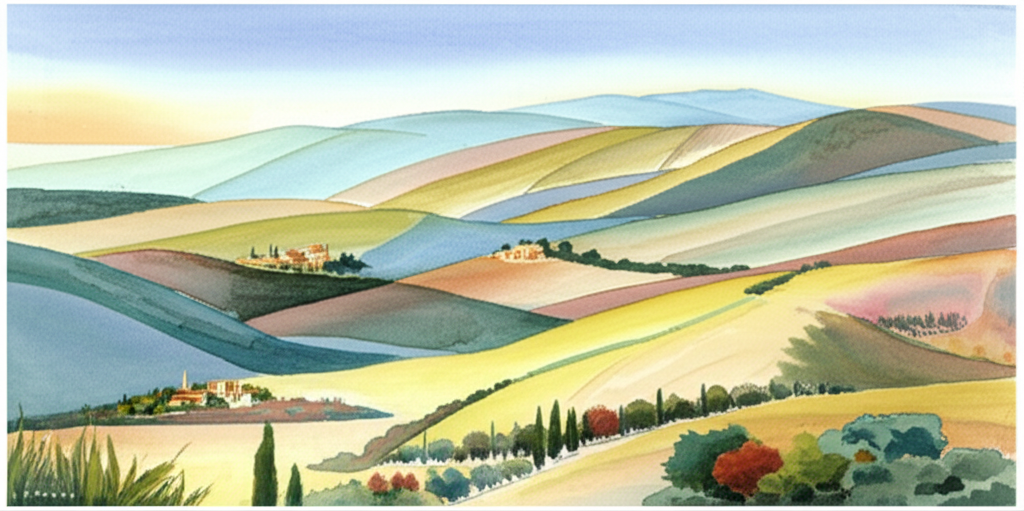
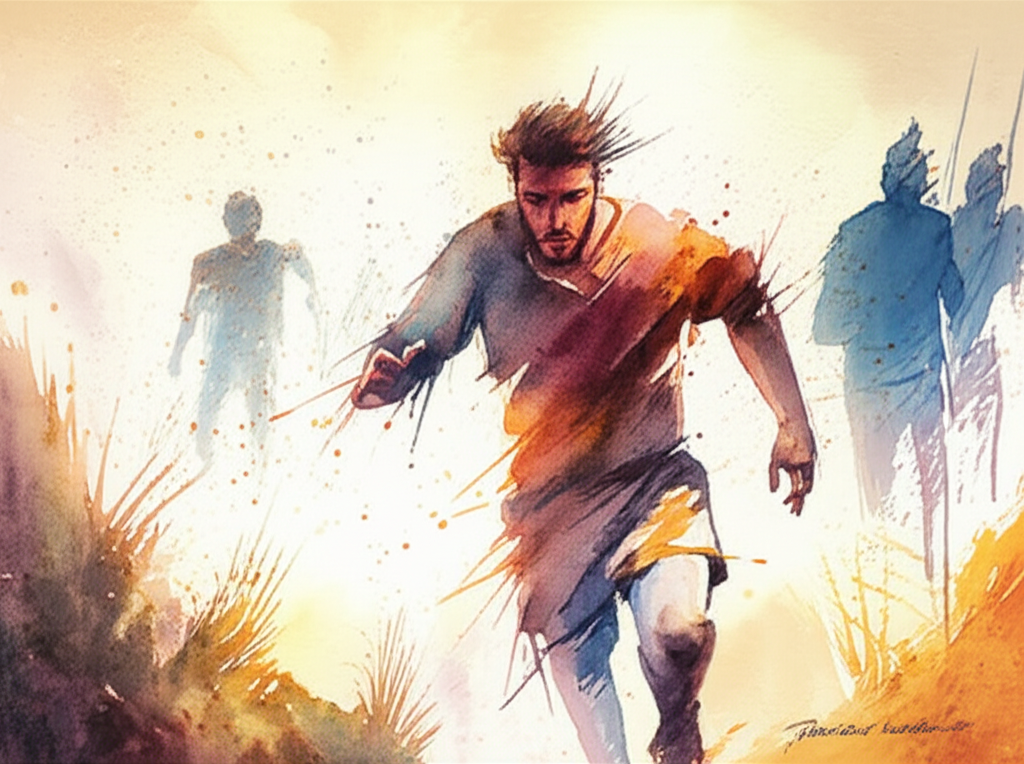
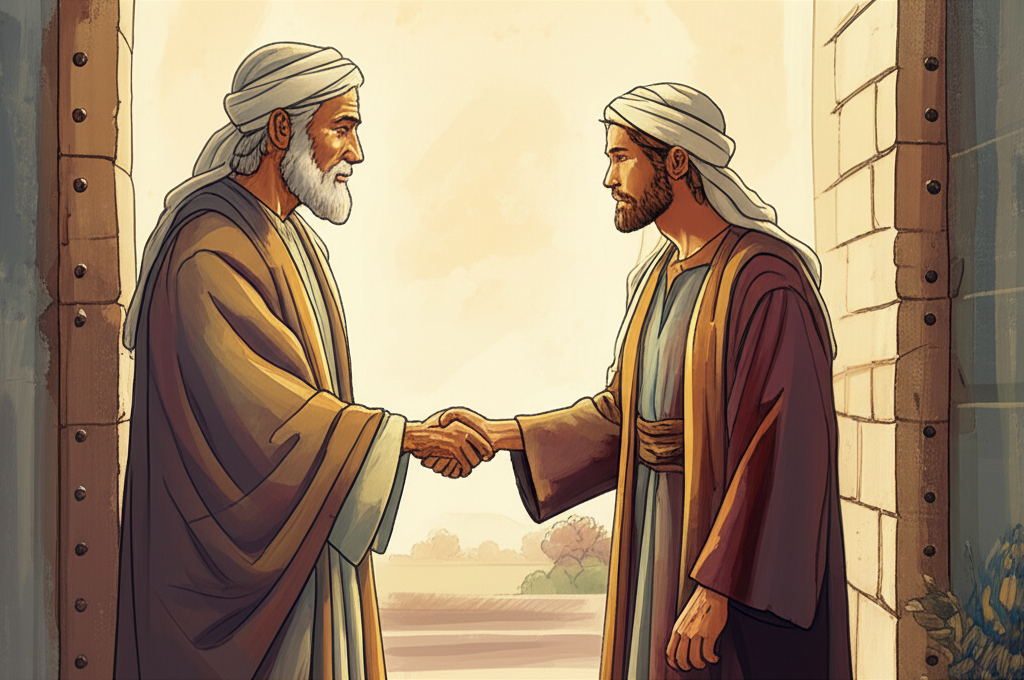
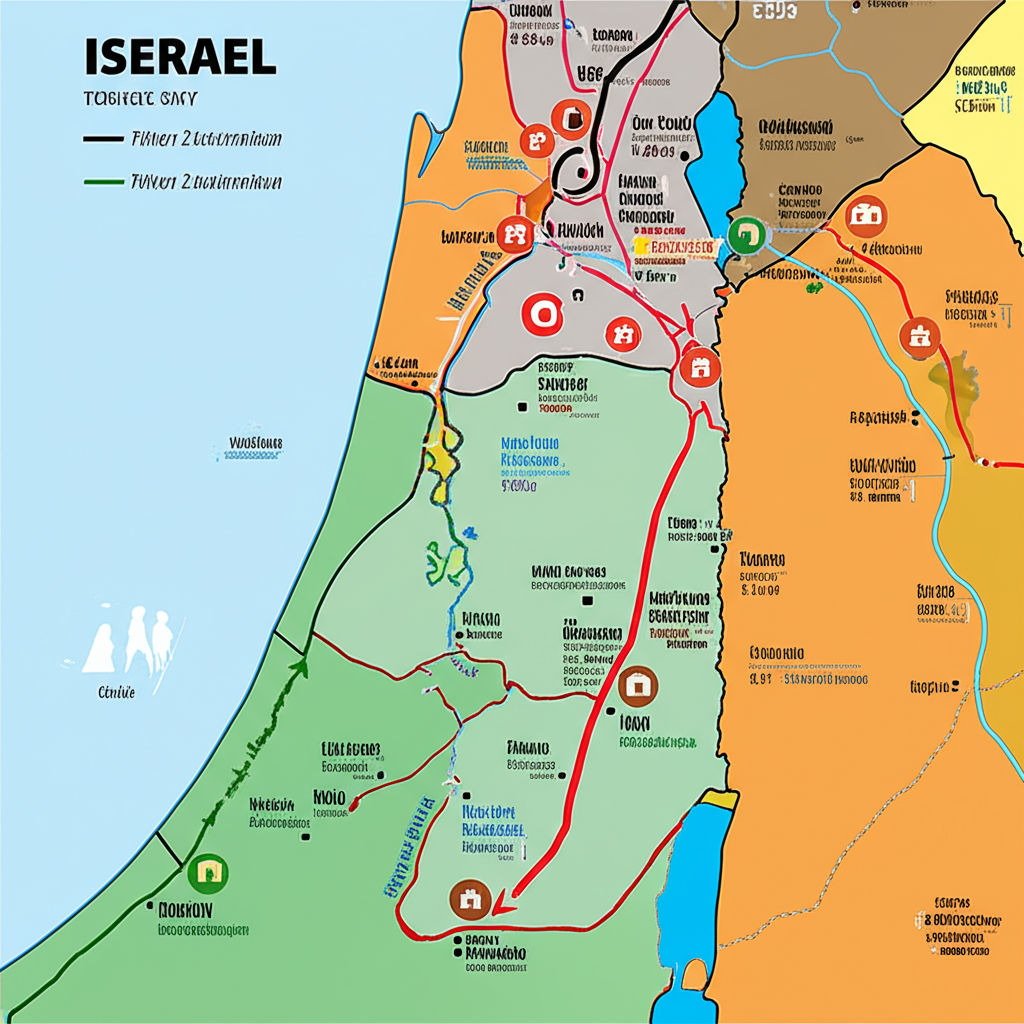
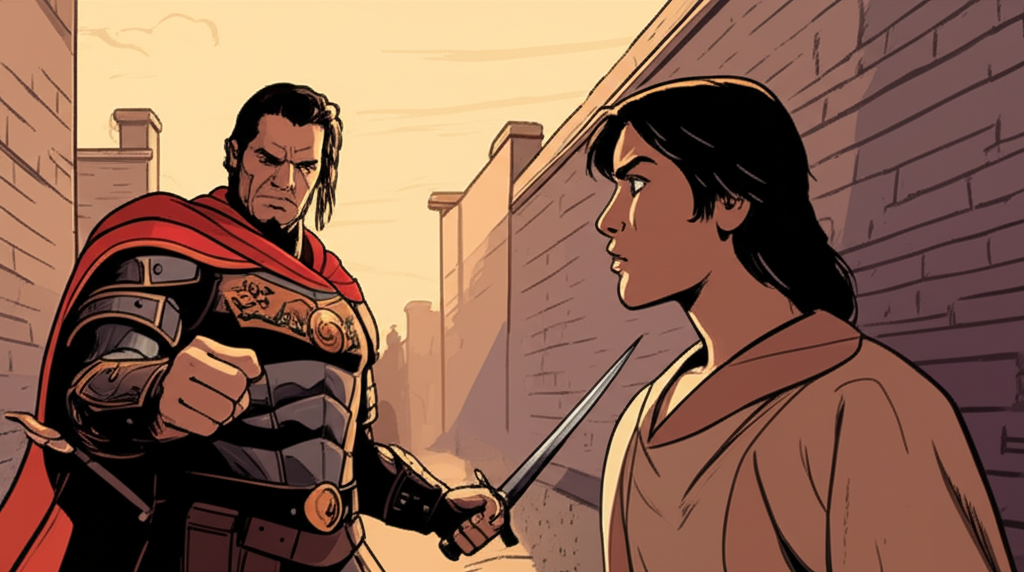

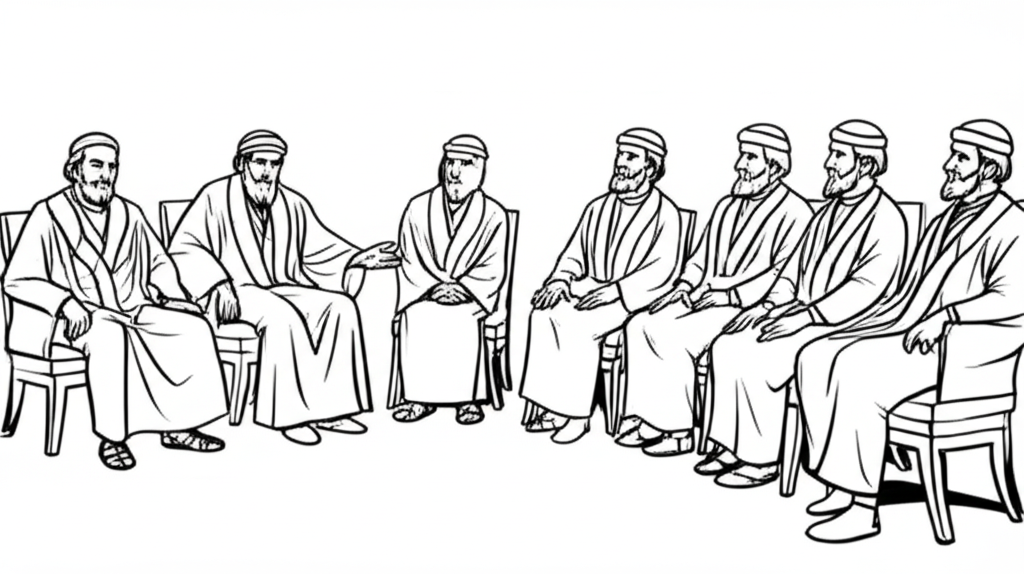
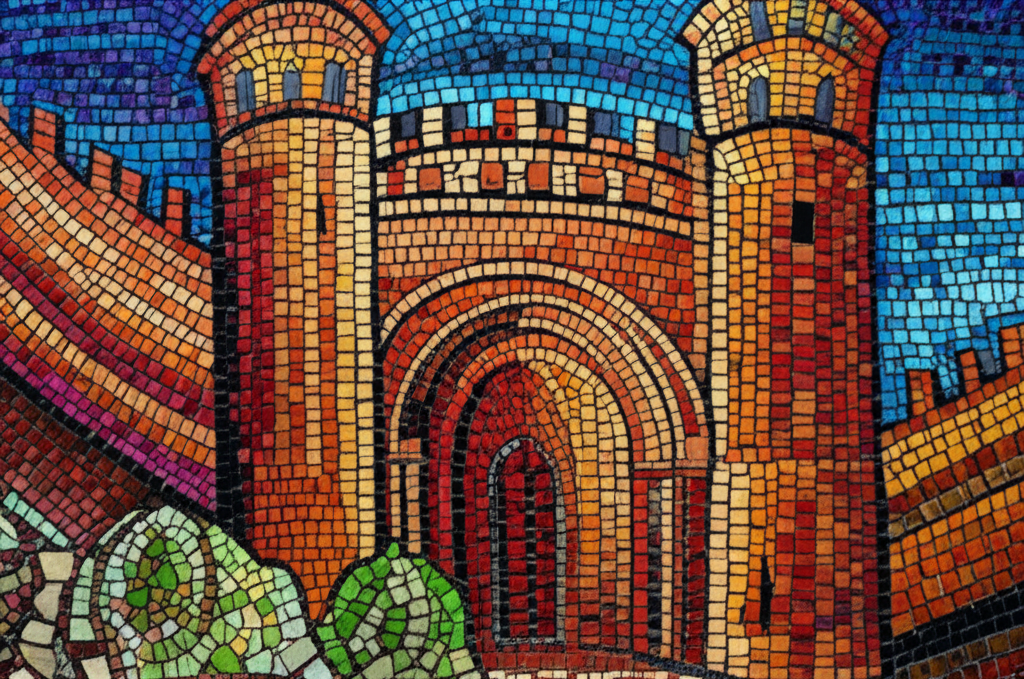

Joshua chapter 20 kjv
- 1 The LORD also spake unto Joshua, saying,
- 2 Speak to the children of Israel, saying, Appoint out for you cities of refuge, whereof I spake unto you by the hand of Moses:
- 3 That the slayer that killeth any person unawares and unwittingly may flee thither: and they shall be your refuge from the avenger of blood.
- 4 And when he that doth flee unto one of those cities shall stand at the entering of the gate of the city, and shall declare his cause in the ears of the elders of that city, they shall take him into the city unto them, and give him a place, that he may dwell among them.
- 5 And if the avenger of blood pursue after him, then they shall not deliver the slayer up into his hand; because he smote his neighbor unwittingly, and hated him not beforetime.
- 6 And he shall dwell in that city, until he stand before the congregation for judgment, and until the death of the high priest that shall be in those days: then shall the slayer return, and come unto his own city, and unto his own house, unto the city from whence he fled.
- 7 And they appointed Kedesh in Galilee in mount Naphtali, and Shechem in mount Ephraim, and Kirjatharba, which is Hebron, in the mountain of Judah.
- 8 And on the other side Jordan by Jericho eastward, they assigned Bezer in the wilderness upon the plain out of the tribe of Reuben, and Ramoth in Gilead out of the tribe of Gad, and Golan in Bashan out of the tribe of Manasseh.
- 9 These were the cities appointed for all the children of Israel, and for the stranger that sojourneth among them, that whosoever killeth any person at unawares might flee thither, and not die by the hand of the avenger of blood, until he stood before the congregation.
Joshua chapter 20 nkjv
- 1 The LORD also spoke to Joshua, saying,
- 2 "Speak to the children of Israel, saying: 'Appoint for yourselves cities of refuge, of which I spoke to you through Moses,
- 3 that the slayer who kills a person accidentally or unintentionally may flee there; and they shall be your refuge from the avenger of blood.
- 4 And when he flees to one of those cities, and stands at the entrance of the gate of the city, and declares his case in the hearing of the elders of that city, they shall take him into the city as one of them, and give him a place, that he may dwell among them.
- 5 Then if the avenger of blood pursues him, they shall not deliver the slayer into his hand, because he struck his neighbor unintentionally, but did not hate him beforehand.
- 6 And he shall dwell in that city until he stands before the congregation for judgment, and until the death of the one who is high priest in those days. Then the slayer may return and come to his own city and his own house, to the city from which he fled.' "
- 7 So they appointed Kedesh in Galilee, in the mountains of Naphtali, Shechem in the mountains of Ephraim, and Kirjath Arba (which is Hebron) in the mountains of Judah.
- 8 And on the other side of the Jordan, by Jericho eastward, they assigned Bezer in the wilderness on the plain, from the tribe of Reuben, Ramoth in Gilead, from the tribe of Gad, and Golan in Bashan, from the tribe of Manasseh.
- 9 These were the cities appointed for all the children of Israel and for the stranger who dwelt among them, that whoever killed a person accidentally might flee there, and not die by the hand of the avenger of blood until he stood before the congregation.
Joshua chapter 20 niv
- 1 Then the LORD said to Joshua:
- 2 "Tell the Israelites to designate the cities of refuge, as I instructed you through Moses,
- 3 so that anyone who kills a person accidentally and unintentionally may flee there and find protection from the avenger of blood.
- 4 When they flee to one of these cities, they are to stand in the entrance of the city gate and state their case before the elders of that city. Then the elders are to admit the fugitive into their city and provide a place to live among them.
- 5 If the avenger of blood comes in pursuit, the elders must not surrender the fugitive, because the fugitive killed their neighbor unintentionally and without malice aforethought.
- 6 They are to stay in that city until they have stood trial before the assembly and until the death of the high priest who is serving at that time. Then they may go back to their own home in the town from which they fled."
- 7 So they set apart Kedesh in Galilee in the hill country of Naphtali, Shechem in the hill country of Ephraim, and Kiriath Arba (that is, Hebron) in the hill country of Judah.
- 8 East of the Jordan (on the other side from Jericho) they designated Bezer in the wilderness on the plateau in the tribe of Reuben, Ramoth in Gilead in the tribe of Gad, and Golan in Bashan in the tribe of Manasseh.
- 9 Any of the Israelites or any foreigner residing among them who killed someone accidentally could flee to these designated cities and not be killed by the avenger of blood prior to standing trial before the assembly.
Joshua chapter 20 esv
- 1 Then the LORD said to Joshua,
- 2 "Say to the people of Israel, 'Appoint the cities of refuge, of which I spoke to you through Moses,
- 3 that the manslayer who strikes any person without intent or unknowingly may flee there. They shall be for you a refuge from the avenger of blood.
- 4 He shall flee to one of these cities and shall stand at the entrance of the gate of the city and explain his case to the elders of that city. Then they shall take him into the city and give him a place, and he shall remain with them.
- 5 And if the avenger of blood pursues him, they shall not give up the manslayer into his hand, because he struck his neighbor unknowingly, and did not hate him in the past.
- 6 And he shall remain in that city until he has stood before the congregation for judgment, until the death of him who is high priest at the time. Then the manslayer may return to his own town and his own home, to the town from which he fled.'"
- 7 So they set apart Kedesh in Galilee in the hill country of Naphtali, and Shechem in the hill country of Ephraim, and Kiriath-arba (that is, Hebron) in the hill country of Judah.
- 8 And beyond the Jordan east of Jericho, they appointed Bezer in the wilderness on the tableland, from the tribe of Reuben, and Ramoth in Gilead, from the tribe of Gad, and Golan in Bashan, from the tribe of Manasseh.
- 9 These were the cities designated for all the people of Israel and for the stranger sojourning among them, that anyone who killed a person without intent could flee there, so that he might not die by the hand of the avenger of blood, till he stood before the congregation.
Joshua chapter 20 nlt
- 1 The LORD said to Joshua,
- 2 "Now tell the Israelites to designate the cities of refuge, as I instructed Moses.
- 3 Anyone who kills another person accidentally and unintentionally can run to one of these cities; they will be places of refuge from relatives seeking revenge for the person who was killed.
- 4 "Upon reaching one of these cities, the one who caused the death will appear before the elders at the city gate and present his case. They must allow him to enter the city and give him a place to live among them.
- 5 If the relatives of the victim come to avenge the killing, the leaders must not release the slayer to them, for he killed the other person unintentionally and without previous hostility.
- 6 But the slayer must stay in that city and be tried by the local assembly, which will render a judgment. And he must continue to live in that city until the death of the high priest who was in office at the time of the accident. After that, he is free to return to his own home in the town from which he fled."
- 7 The following cities were designated as cities of refuge: Kedesh of Galilee, in the hill country of Naphtali; Shechem, in the hill country of Ephraim; and Kiriath-arba (that is, Hebron), in the hill country of Judah.
- 8 On the east side of the Jordan River, across from Jericho, the following cities were designated: Bezer, in the wilderness plain of the tribe of Reuben; Ramoth in Gilead, in the territory of the tribe of Gad; and Golan in Bashan, in the land of the tribe of Manasseh.
- 9 These cities were set apart for all the Israelites as well as the foreigners living among them. Anyone who accidentally killed another person could take refuge in one of these cities. In this way, they could escape being killed in revenge prior to standing trial before the local assembly.
- Bible Book of Joshua
- 1 Story of Joshua
- 2 Story of Rahab the Prostitue in Jericho
- 3 Crossing the Jordan
- 4 Memorial stones in the Jordan river
- 5 The New Generation Circumcised
- 6 The Fall of Jericho walls
- 7 Israel Defeated at Ai
- 8 Story of Ai
- 9 The Gibeonite Deception
- 10 The Sun stood still
- 11 Conquests in Northern Canaan
- 12 Kings Defeated by Moses
- 13 Land Still to Be Conquered
- 14 The Inheritance West of the Jordan
- 15 The Allotment for Judah
- 16 The Allotment for Ephraim and Manasseh
- 17 Then allotment was made to the people of Manasseh, for he was the firstborn of
- 18 Allotment of the Remaining Land
- 19 The Inheritance for Simeon
- 20 The Cities of Refuge
- 21 Cities and Pasturelands Allotted to Levi
- 22 The Eastern Tribes Return Home
- 23 Joshua's Charge to Israel's Leaders
- 24 The Covenant Renewal at Shechem